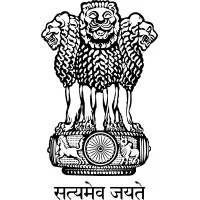Indian Constitution- Emergency Provisions [Part 4]
21 மே, 2023PART XVIII
EMERGENCY PROVISIONS
359. Suspension of the enforcement of the rights conferred by Part III during emergencies.—
(1) Where a Proclamation of Emergency is in operation, the President may by order declare that the right to move any court for the enforcement of such of the rights conferred by Part III (except articles 20 and 21) as may be mentioned in the order and all proceedings pending in any court for the enforcement of the rights so mentioned shall remain suspended for the period during which the Proclamation is in force or for such shorter period as may be specified in the order.
(1A) While an order made under clause (1) mentioning any of the rights conferred by Part III (except articles 20 and 21) is in operation, nothing in that Part conferring those rights shall restrict the power of the State as defined in the said Part to make any law or to take any executive action which the State would but for the provisions contained in that Part be competent to make or to take, but any law so made shall, to the extent of the incompetency, cease to have effect as soon as the order aforesaid ceases to operate, except as respects things done or omitted to be done before the law so ceases to have effect:
Provided that where a Proclamation of Emergency is in operation only in any part of the territory of India, any such law may be made, or any such executive action may be taken, under this article in relation to or in any State or Union territory in which or in any part of which the Proclamation of
Emergency is not in operation, if and in so far as the security of India or any part of the territory thereof is threatened by activities in or in relation to the part of the territory of India in which the Proclamation of Emergency is in operation.
(1B) Nothing in clause (1A) shall apply—
(a) to any law which does not contain a recital to the effect that such law is in relation to the Proclamation of Emergency in operation when it is made; or
(b) to any executive action taken otherwise than under a law containing such a recital.
(2) An order made as aforesaid may extend to the whole or any part of the territory of India:
Provided that where a Proclamation of Emergency is in operation only in a part of the territory of India, any such order shall not extend to any other part of the territory of India unless the President, being satisfied that the security of India or any part of the territory thereof is threatened by activities in
or in relation to the part of the territory of India in which the Proclamation of Emergency is in operation, considers such extension to be necessary.
(3) Every order made under clause (1) shall, as soon as may be after it is made, be laid before each House of Parliament.
360. Provisions as to financial emergency.—
(1) If the President is satisfied that a situation has arisen whereby the financial stability or credit of India or of any part of the territory thereof is threatened, he may by a Proclamation make a declaration to that effect.
(2) A Proclamation issued under clause (1)—
(a) may be revoked or varied by a subsequent Proclamation;
(b) shall be laid before each House of Parliament;
(c) shall cease to operate at the expiration of two months, unless before the expiration of that period it has been approved by resolutions of both Houses of Parliament:
Provided that if any such Proclamation is issued at a time when the House of the People has been dissolved or the dissolution of the House of the People takes place during the period of two months referred to in sub-clause (c), and if a resolution approving the Proclamation has been passed by the Council of States, but no resolution with respect to such Proclamation has been passed by the House of the People before the expiration of that period, the Proclamation shall cease to operate at the expiration of thirty days from the date on which the House of the People first sits after its reconstitution unless
before the expiration of the said period of thirty days a resolution approving the Proclamation has been also passed by the House of the People.
(3) During the period any such Proclamation as is mentioned in clause (1) is in operation, the executive authority of the Union shall extend to the giving of directions to any State to observe such canons of financial propriety as may be specified in the directions, and to the giving of such other directions as the President may deem necessary and adequate for the purpose.
(4) Notwithstanding anything in this Constitution—
(a) any such direction may include—
(i) a provision requiring the reduction of salaries and allowances of all or any class of persons serving in connection with the affairs of a State;
(ii) a provision requiring all Money Bills or other Bills to which the provisions of article 207 apply to be reserved for the consideration of the President after they are passed by the Legislature of the State;
(b) it shall be competent for the President during the period any Proclamation issued under this article is in operation to issue directions for the reduction of salaries and allowances of all or any class of persons serving in connection with the affairs of the Union including the Judges of the Supreme Court and the High Courts.






